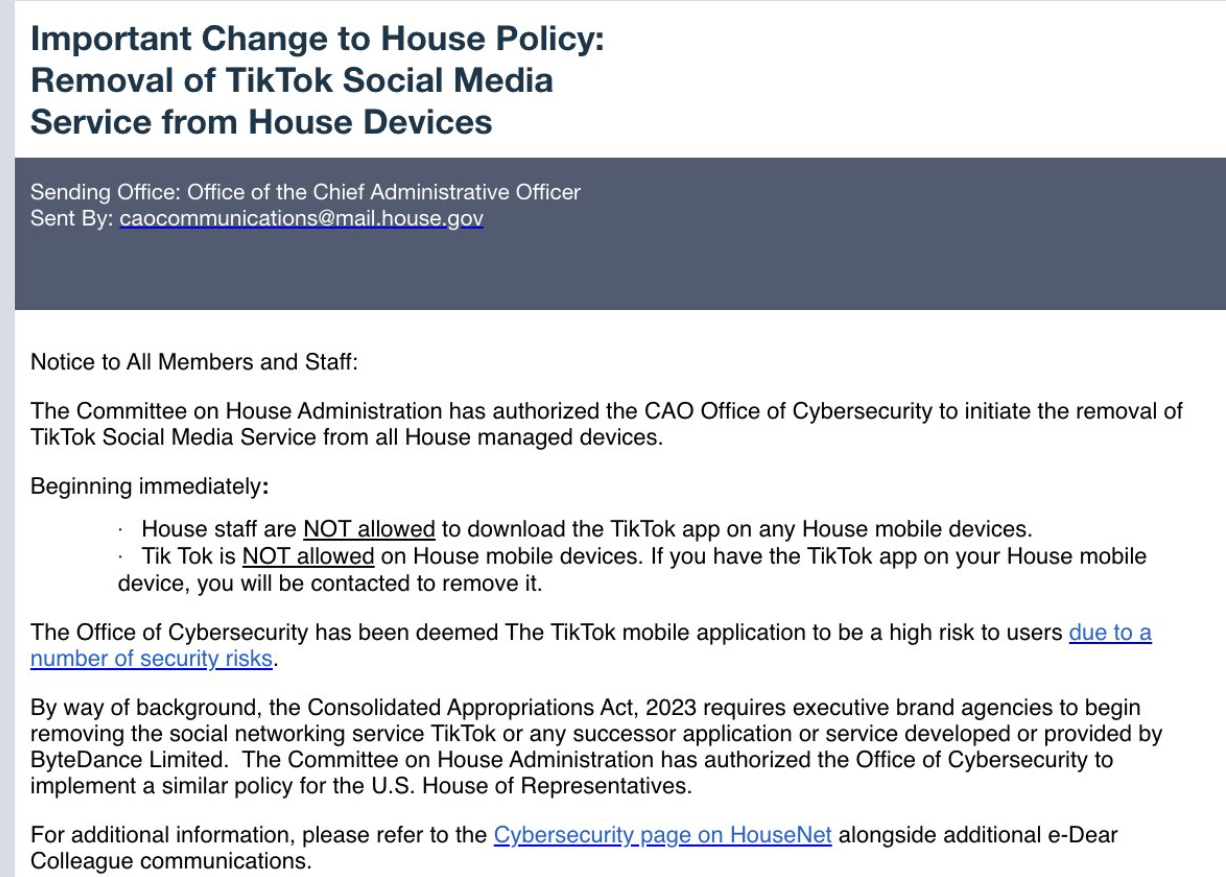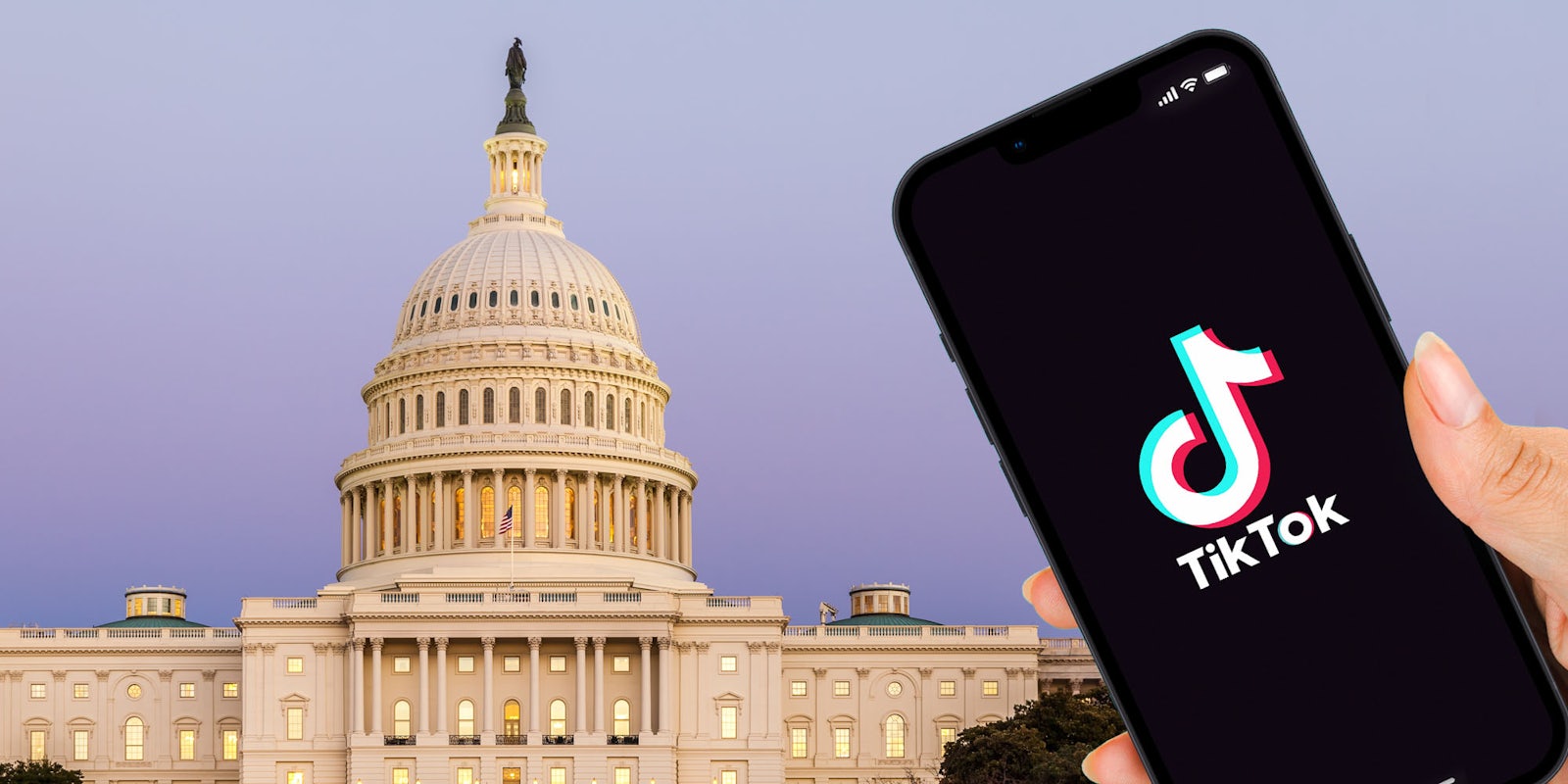Members of the House of Representatives and their staff are now banned from using TikTok on their work phones.
The Office of the Chief Administrative Officer reportedly sent an email notifying members and staff that they are prohibited from downloading TikTok. If they’ve already downloaded the app, the office said it will contact them to remove it.
Politico reporter Nicholas Wu first tweeted a screenshot of the email the office sent to members and staff.
“The Office of Cybersecurity has been deemed the TikTok mobile application to be a high risk to users due to a number of security risks,” it stated.

Wu noted that several representatives, such as Rep. Ayanna Pressley (D-Mass.), are on TikTok. The new policy does not appear to prohibit using the app on a personal device.
Rep. Dusty Johnson (R-S.D.) tweeted of the news, “Today, the Office of Cybersecurity began removing TikTok from federal government devices due to its many security risks. As a leader in the House on this issue, I’m proud to see action to #BlockTheTok.”
TikTok said that it is working to address the government’s concerns.
“We have been working with the U.S. Committee on Foreign Investment [CFIUS] for over two years to address all reasonable national security concerns about TikTok in the U.S.,” spokesperson Brooke Oberwetter told the Daily Dot via email. “We believe those concerns can be fully resolved, and CFIUS is currently considering a comprehensive solution that addresses key concerns around corporate governance, content recommendation and moderation, and data security and access.”
The company believes it’s doing more than other platforms to protect user security and privacy.
“This is a comprehensive package of measures with layers of government and independent oversight to address concerns about TikTok content recommendation and access to U.S. user data—measures well beyond what any peer company is doing today,” Oberwetter added.
As TikTok has grown in popularity, now topping over 1 billion users, concerns about security and privacy on the app have similarly increased. The app collects data on users’ activity, as well as their contacts and other personal information. Social media platforms are generally considered to be a gold mine for user data, but TikTok is of particular interest to the government because of its foreign ownership.
There have long been fears that TikTok’s parent company, the Chinese-owned ByteDance, is providing user data to the China.
In November, Federal Bureau of Investigation Director Christopher Wray said of the app, “We do have national security concerns. They include the possibility that the Chinese government could use it to control data collection on millions of users.”
Security concerns have led several states and the United States military to prohibit government employees from having the app on their devices in recent months. Last week, Congress passed a bill that would ban it from federal devices.
ByteDance has attempted to assuage such concerns by moving to maintain data from users within the United States exclusively on U.S. soil via a contract with Oracle.
Last week, the New York Times reported that the company’s employees had improperly accessed U.S. users’ data, including that of two journalists. The company said the data was from before TikTok began storing data in the U.S. The company reportedly said it will delete all historical data that is outside Oracle’s systems.
Some members of Congress now support legislation that would completely ban TikTok in the United States.



